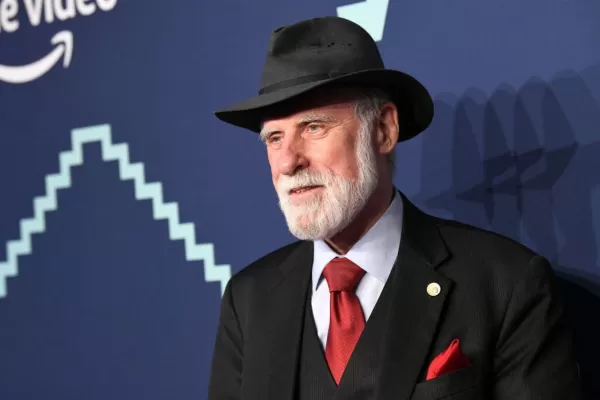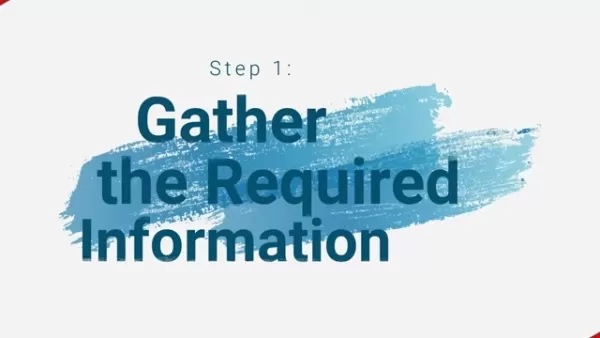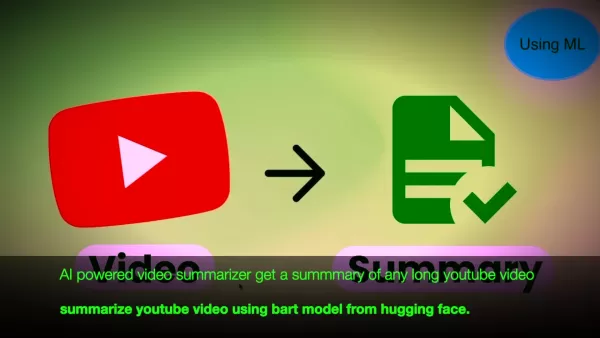Vint Cerf Advises Leaders on Thriving in AI-Enabled Future Internet

In a recent episode of my weekly podcast, DisrupTV, I had the pleasure of sitting down with Constellation Research's R "Ray" Wang to interview two luminaries who have profoundly influenced our digital world: Dr. Vinton G. Cerf, vice president and chief internet evangelist at Google, and Dr. David Bray, distinguished chair of the accelerator at the Henry L. Stimson Center and Principal/CEO of LeadDoAdapt Ventures, Inc. Their wisdom on navigating the AI era, leadership, and the intersection of technology with societal needs is invaluable for modern leaders.
As artificial intelligence reshapes our world, their experiences in marrying technological innovation with human-centric solutions provide a roadmap for executives. This blueprint is essential for those looking to leverage new technologies while sidestepping the traps that could harm business success and societal well-being.
The Internet's Journey and Future Horizons
Dr. Cerf, often hailed as a "Father of the Internet," recounted the evolution from ARPANET to a global network connecting 5.6 billion people. His vision for the internet's future includes increased capacity, broader accessibility, and even extending connectivity to space. Since 1998, Cerf has been instrumental in developing an "interplanetary internet backbone" at the Jet Propulsion Lab. He also highlighted the growing role of AI, noting that about 25% of Google's software is now generated using AI tools. Cerf envisions a future filled with "an abundance of computing and communication capability" that will fuel remarkable achievements.
Dr. Bray, who has collaborated with Cerf through the People-Centered Internet coalition from 2017 to 2021, emphasized the importance of digital resilience, bridging digital divides, and fostering community-driven innovation. He believes that "the most successful digital transformations occur when communities actively shape how technology meets their unique needs."
Bray also offered a balanced view on the internet's impact:
"The internet's ability to connect us globally and provide access to information is phenomenal. Yet, like radio and television before it, there's a risk that it could be used for propaganda or to create echo chambers where diverse ideas aren't encountered."
Leadership Insights from Pioneers
When asked about leadership lessons from his career, Dr. Cerf shared several guiding principles:
- Seek Collaboration: "If you want to achieve something significant, you need to collaborate."
- Sell Your Ideas: "Learn to pitch your ideas effectively so others are motivated to join your efforts."
- Stay Curious: "I hope to retain the same curiosity I had at 10 years old."
- Value Mentorship: Cerf acknowledged mentors like Bob Kahn and Steve Crocker, who "kept my curiosity alive and fueled my interests."
Dr. Bray, reflecting on his work with Cerf, outlined key leadership themes:
- Drive Positive Change: "Change agents must navigate resistance while pushing forward."
- Adaptable Leadership: "Effective leaders adapt their approach to different situations while maintaining core values."
- Diverse and Resilient Teams: "Complex challenges require teams with diverse thinking."
- Consistent Values Build Trust: "Leaders must demonstrate unwavering values, even as circumstances evolve."
People-Centered Technology and AI
Both leaders underscored the importance of technology serving humanity. Cerf pointed out that while the internet connects like-minded individuals, it's crucial to recognize that "like-mindedness doesn't always align with our best interests." He stressed the need for accountability, responsibility, and ethics—elements that "technology alone cannot solve. They require social norms, possibly laws, and enforcement."
Bray emphasized community engagement in shaping AI's future, asking, "How do communities want to use AI and the internet for work, education, and a new social contract?"
Both experts discussed necessary safeguards for AI and future technologies. Cerf advocated for interdisciplinary approaches, suggesting that "introducing technology should involve sociologists, psychologists, and anthropologists to understand its societal impact."
Cerf also warned about the persuasiveness of AI, which can be "more articulate than many people we know," making it crucial to critically assess AI-generated information and ensure its provenance.
Bray's approach focuses on empowering people: "We need spaces where individuals can actively shape their future, even amidst differing views and paths."
Guidance for Today's Leaders
For executives navigating digital transformation and AI integration, Cerf and Bray provided seven key insights:
- Reassess the Social Contract: "We must revisit the social contract to ensure accountability accompanies agency."
- Foster Human Connection: Create "electronic agoras" where diverse ideas can be shared and discussed.
- Balance Innovation and Responsibility: Technological advancements must be matched with ethical considerations and societal impact assessments.
- Collaborate Across Disciplines: Address future challenges by working with technologists, social scientists, ethicists, policymakers, and community leaders.
- Lead with Empathy: Understand how changes impact various stakeholders and address their concerns authentically.
- Promote Psychological Safety: "Innovation thrives in environments where people feel safe to take risks. Encourage calculated risks and view failures as learning opportunities."
- Anticipate Exponential Change: Prepare organizations for rapid technological advancements.
As we navigate the crossroads of the internet age and AI revolution, these insights from Cerf and Bray provide a guiding light for leaders. They envision a future where thoughtful leadership, inclusive dialogue, and a commitment to human dignity guide our journey forward, even as technology and data capabilities advance.
This article was co-authored by Dr. David Bray, principal and CEO at LeadDoAdapt (LDA) Ventures, chair of the Accelerator, and distinguished fellow at the Stimson Center.
Stay updated with the latest in tech by subscribing to our Tech Today newsletter.
Related article
 AI-Powered Cover Letters: Expert Guide for Journal Submissions
In today's competitive academic publishing environment, crafting an effective cover letter can make the crucial difference in your manuscript's acceptance. Discover how AI-powered tools like ChatGPT can streamline this essential task, helping you cre
AI-Powered Cover Letters: Expert Guide for Journal Submissions
In today's competitive academic publishing environment, crafting an effective cover letter can make the crucial difference in your manuscript's acceptance. Discover how AI-powered tools like ChatGPT can streamline this essential task, helping you cre
 US to Sanction Foreign Officials Over Social Media Regulations
US Takes Stand Against Global Digital Content Regulations
The State Department issued a sharp diplomatic rebuke this week targeting European digital governance policies, signaling escalating tensions over control of online platforms. Secretary Marco
US to Sanction Foreign Officials Over Social Media Regulations
US Takes Stand Against Global Digital Content Regulations
The State Department issued a sharp diplomatic rebuke this week targeting European digital governance policies, signaling escalating tensions over control of online platforms. Secretary Marco
 Ultimate Guide to AI-Powered YouTube Video Summarizers
In our information-rich digital landscape, AI-powered YouTube video summarizers have become indispensable for efficient content consumption. This in-depth guide explores how to build a sophisticated summarization tool using cutting-edge NLP technolog
Comments (2)
0/200
Ultimate Guide to AI-Powered YouTube Video Summarizers
In our information-rich digital landscape, AI-powered YouTube video summarizers have become indispensable for efficient content consumption. This in-depth guide explores how to build a sophisticated summarization tool using cutting-edge NLP technolog
Comments (2)
0/200
![JasonJohnson]() JasonJohnson
JasonJohnson
 August 21, 2025 at 7:01:20 PM EDT
August 21, 2025 at 7:01:20 PM EDT
Vint Cerf's insights on AI's future are mind-blowing! It's wild to think how AI will reshape the internet. Curious how leaders will balance innovation with ethics 🤔.


 0
0
![StevenSanchez]() StevenSanchez
StevenSanchez
 July 29, 2025 at 8:25:16 AM EDT
July 29, 2025 at 8:25:16 AM EDT
Vint Cerf's insights on AI's future are mind-blowing! It's wild to think how deeply AI will reshape the internet. Curious how leaders will balance innovation with ethics 🤔.


 0
0

In a recent episode of my weekly podcast, DisrupTV, I had the pleasure of sitting down with Constellation Research's R "Ray" Wang to interview two luminaries who have profoundly influenced our digital world: Dr. Vinton G. Cerf, vice president and chief internet evangelist at Google, and Dr. David Bray, distinguished chair of the accelerator at the Henry L. Stimson Center and Principal/CEO of LeadDoAdapt Ventures, Inc. Their wisdom on navigating the AI era, leadership, and the intersection of technology with societal needs is invaluable for modern leaders.
As artificial intelligence reshapes our world, their experiences in marrying technological innovation with human-centric solutions provide a roadmap for executives. This blueprint is essential for those looking to leverage new technologies while sidestepping the traps that could harm business success and societal well-being.
The Internet's Journey and Future Horizons
Dr. Cerf, often hailed as a "Father of the Internet," recounted the evolution from ARPANET to a global network connecting 5.6 billion people. His vision for the internet's future includes increased capacity, broader accessibility, and even extending connectivity to space. Since 1998, Cerf has been instrumental in developing an "interplanetary internet backbone" at the Jet Propulsion Lab. He also highlighted the growing role of AI, noting that about 25% of Google's software is now generated using AI tools. Cerf envisions a future filled with "an abundance of computing and communication capability" that will fuel remarkable achievements.
Dr. Bray, who has collaborated with Cerf through the People-Centered Internet coalition from 2017 to 2021, emphasized the importance of digital resilience, bridging digital divides, and fostering community-driven innovation. He believes that "the most successful digital transformations occur when communities actively shape how technology meets their unique needs."
Bray also offered a balanced view on the internet's impact:
"The internet's ability to connect us globally and provide access to information is phenomenal. Yet, like radio and television before it, there's a risk that it could be used for propaganda or to create echo chambers where diverse ideas aren't encountered."
Leadership Insights from Pioneers
When asked about leadership lessons from his career, Dr. Cerf shared several guiding principles:
- Seek Collaboration: "If you want to achieve something significant, you need to collaborate."
- Sell Your Ideas: "Learn to pitch your ideas effectively so others are motivated to join your efforts."
- Stay Curious: "I hope to retain the same curiosity I had at 10 years old."
- Value Mentorship: Cerf acknowledged mentors like Bob Kahn and Steve Crocker, who "kept my curiosity alive and fueled my interests."
Dr. Bray, reflecting on his work with Cerf, outlined key leadership themes:
- Drive Positive Change: "Change agents must navigate resistance while pushing forward."
- Adaptable Leadership: "Effective leaders adapt their approach to different situations while maintaining core values."
- Diverse and Resilient Teams: "Complex challenges require teams with diverse thinking."
- Consistent Values Build Trust: "Leaders must demonstrate unwavering values, even as circumstances evolve."
People-Centered Technology and AI
Both leaders underscored the importance of technology serving humanity. Cerf pointed out that while the internet connects like-minded individuals, it's crucial to recognize that "like-mindedness doesn't always align with our best interests." He stressed the need for accountability, responsibility, and ethics—elements that "technology alone cannot solve. They require social norms, possibly laws, and enforcement."
Bray emphasized community engagement in shaping AI's future, asking, "How do communities want to use AI and the internet for work, education, and a new social contract?"
Both experts discussed necessary safeguards for AI and future technologies. Cerf advocated for interdisciplinary approaches, suggesting that "introducing technology should involve sociologists, psychologists, and anthropologists to understand its societal impact."
Cerf also warned about the persuasiveness of AI, which can be "more articulate than many people we know," making it crucial to critically assess AI-generated information and ensure its provenance.
Bray's approach focuses on empowering people: "We need spaces where individuals can actively shape their future, even amidst differing views and paths."
Guidance for Today's Leaders
For executives navigating digital transformation and AI integration, Cerf and Bray provided seven key insights:
- Reassess the Social Contract: "We must revisit the social contract to ensure accountability accompanies agency."
- Foster Human Connection: Create "electronic agoras" where diverse ideas can be shared and discussed.
- Balance Innovation and Responsibility: Technological advancements must be matched with ethical considerations and societal impact assessments.
- Collaborate Across Disciplines: Address future challenges by working with technologists, social scientists, ethicists, policymakers, and community leaders.
- Lead with Empathy: Understand how changes impact various stakeholders and address their concerns authentically.
- Promote Psychological Safety: "Innovation thrives in environments where people feel safe to take risks. Encourage calculated risks and view failures as learning opportunities."
- Anticipate Exponential Change: Prepare organizations for rapid technological advancements.
As we navigate the crossroads of the internet age and AI revolution, these insights from Cerf and Bray provide a guiding light for leaders. They envision a future where thoughtful leadership, inclusive dialogue, and a commitment to human dignity guide our journey forward, even as technology and data capabilities advance.
This article was co-authored by Dr. David Bray, principal and CEO at LeadDoAdapt (LDA) Ventures, chair of the Accelerator, and distinguished fellow at the Stimson Center.
Stay updated with the latest in tech by subscribing to our Tech Today newsletter.
 AI-Powered Cover Letters: Expert Guide for Journal Submissions
In today's competitive academic publishing environment, crafting an effective cover letter can make the crucial difference in your manuscript's acceptance. Discover how AI-powered tools like ChatGPT can streamline this essential task, helping you cre
AI-Powered Cover Letters: Expert Guide for Journal Submissions
In today's competitive academic publishing environment, crafting an effective cover letter can make the crucial difference in your manuscript's acceptance. Discover how AI-powered tools like ChatGPT can streamline this essential task, helping you cre
 US to Sanction Foreign Officials Over Social Media Regulations
US Takes Stand Against Global Digital Content Regulations
The State Department issued a sharp diplomatic rebuke this week targeting European digital governance policies, signaling escalating tensions over control of online platforms. Secretary Marco
US to Sanction Foreign Officials Over Social Media Regulations
US Takes Stand Against Global Digital Content Regulations
The State Department issued a sharp diplomatic rebuke this week targeting European digital governance policies, signaling escalating tensions over control of online platforms. Secretary Marco
 Ultimate Guide to AI-Powered YouTube Video Summarizers
In our information-rich digital landscape, AI-powered YouTube video summarizers have become indispensable for efficient content consumption. This in-depth guide explores how to build a sophisticated summarization tool using cutting-edge NLP technolog
Ultimate Guide to AI-Powered YouTube Video Summarizers
In our information-rich digital landscape, AI-powered YouTube video summarizers have become indispensable for efficient content consumption. This in-depth guide explores how to build a sophisticated summarization tool using cutting-edge NLP technolog
 August 21, 2025 at 7:01:20 PM EDT
August 21, 2025 at 7:01:20 PM EDT
Vint Cerf's insights on AI's future are mind-blowing! It's wild to think how AI will reshape the internet. Curious how leaders will balance innovation with ethics 🤔.


 0
0
 July 29, 2025 at 8:25:16 AM EDT
July 29, 2025 at 8:25:16 AM EDT
Vint Cerf's insights on AI's future are mind-blowing! It's wild to think how deeply AI will reshape the internet. Curious how leaders will balance innovation with ethics 🤔.


 0
0





























